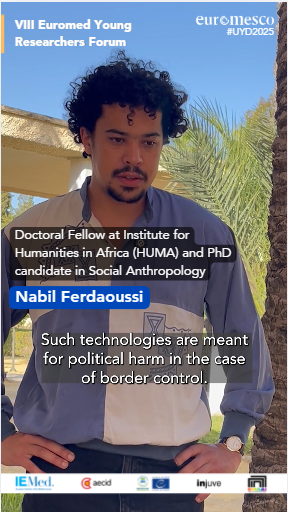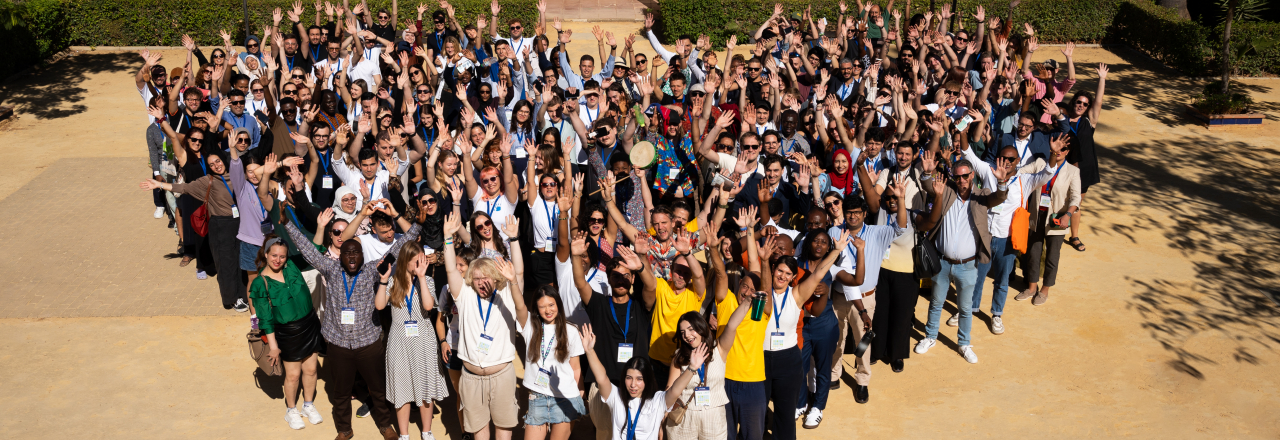
Euromed Young Researchers Forum 2025
Under the theme “Shaping the digital future of the Euro‑Mediterranean region”, the 2025 Forum brought together young experts to develop ideas, build skills, and exchange with policy stakeholders.
What we did
Over three days, participants shared and refined their research proposals, gained new tools through capacity-building workshops, and entered into dialogue with policymakers and practitioners. From policy writing and research design to discussions on trust, resilience, and connectivity in the digital sphere, the Forum became a space where academic work and policy debate intersected. Just as importantly, it fostered a sense of community among young researchers from across the Mediterranean.
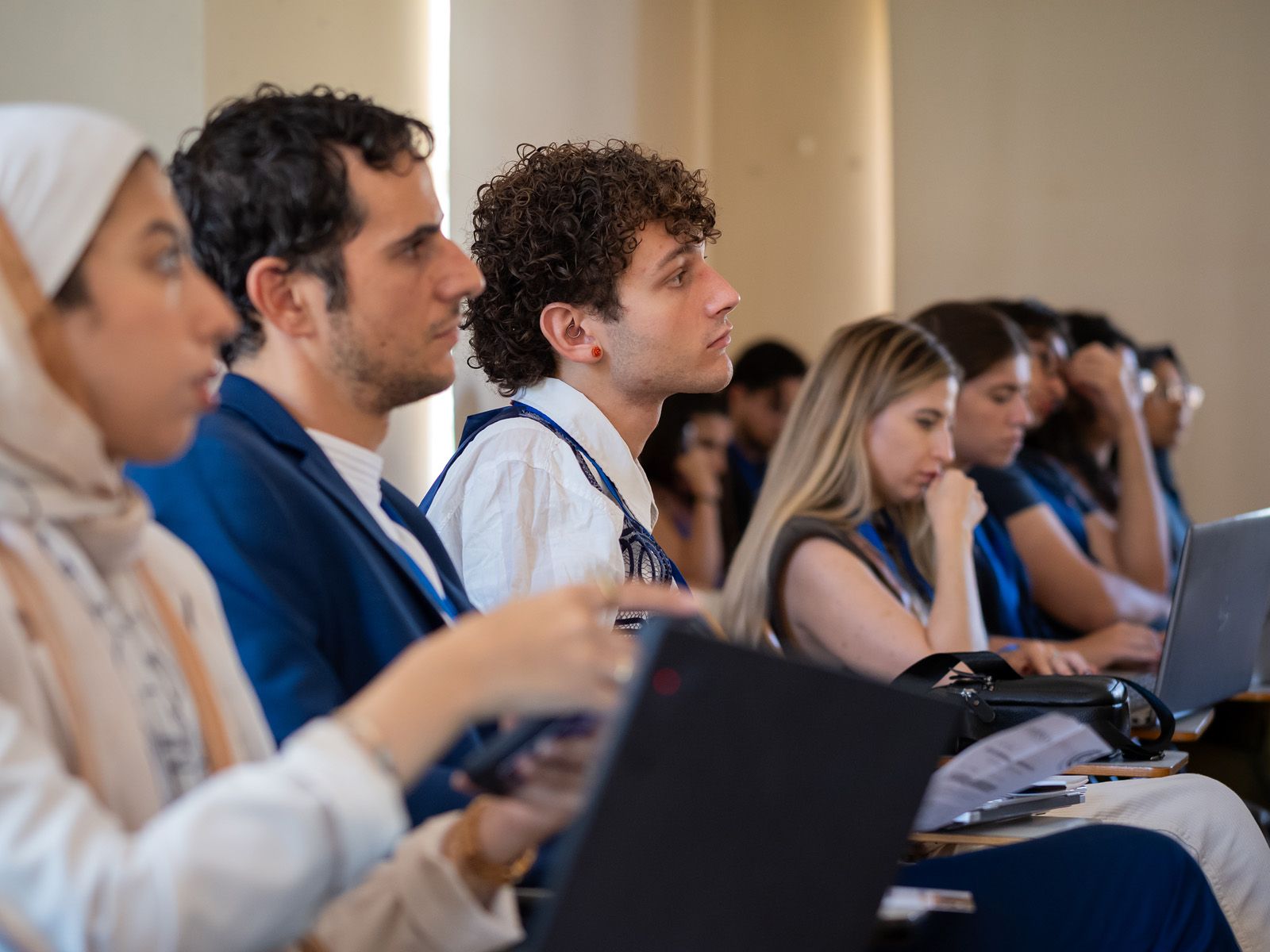
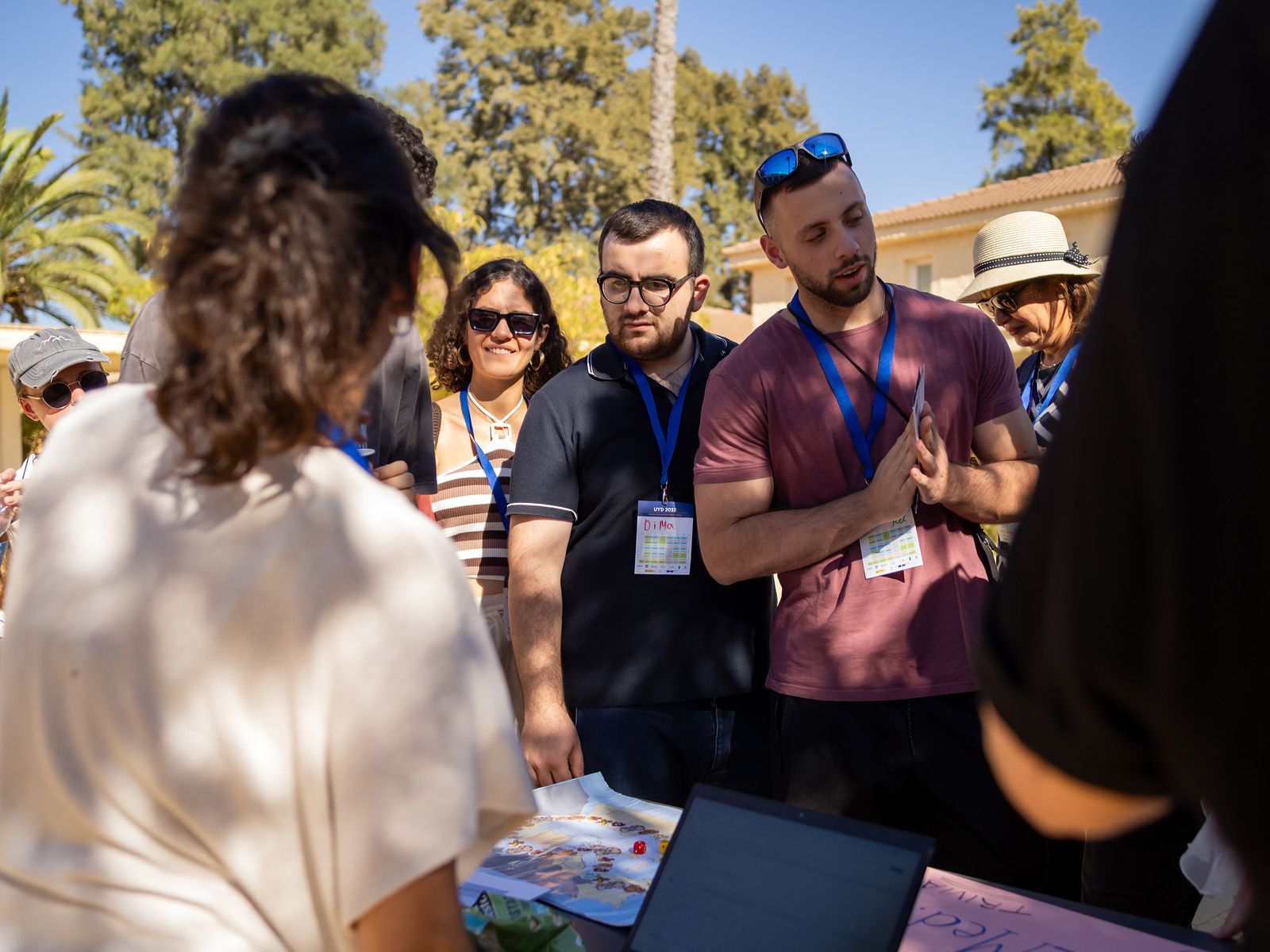
Why it matters
Hosted at CEULAJ (Mollina, Spain) within the Council of Europe North-South Centre’s University on Youth and Development focused on “Empowering youth for digital safety.”
The Forum is part of the Euromed Young Researchers Lab, coordinated by the European Institute of the Mediterranean (IEMed) with the support of the Spanish Agency for International Development Cooperation (AECID). Its goal is to boost the visibility, skills, and impact of a new generation of scholars, while making sure their voices and perspectives inform Euro-Mediterranean debates on digitalisation and beyond.
Young Researchers Forum 2025
in Numbers
30
participants from across the Euro-Mediterranean and neighbouring regions
3
days of collaboration in CEULAJ · Mollina (Spain)
1
common agenda on the digital future of the region
6
policy briefs (below 👇)
Key Takeaways
- Digitalisation is reshaping societies across the Euro-Mediterranean.
From migration management to urban planning and youth participation, the spread of digital tools is redefining how governments and communities address pressing challenges. -
Opportunities for efficiency, transparency, and innovation.
Participants highlighted positive cases such as digital ports improving trade flows, AI-driven sustainability projects supporting greener economies, and youth-led digital initiatives creating new spaces for participation and entrepreneurship. -
Risks that cannot be ignored.
The reliance on digital systems raises concerns around privacy and data protection. Algorithmic biases in asylum procedures may threaten fairness, while technology-facilitated gender-based violence exposes vulnerable groups to new forms of harm and exclusion. -
A call for inclusive and rights-based policies.
Young researchers stressed that digitalisation must not be treated as a purely technical process. Instead, it requires transparent governance, strong safeguards for rights, and meaningful regional cooperation to ensure that innovation benefits everyone.
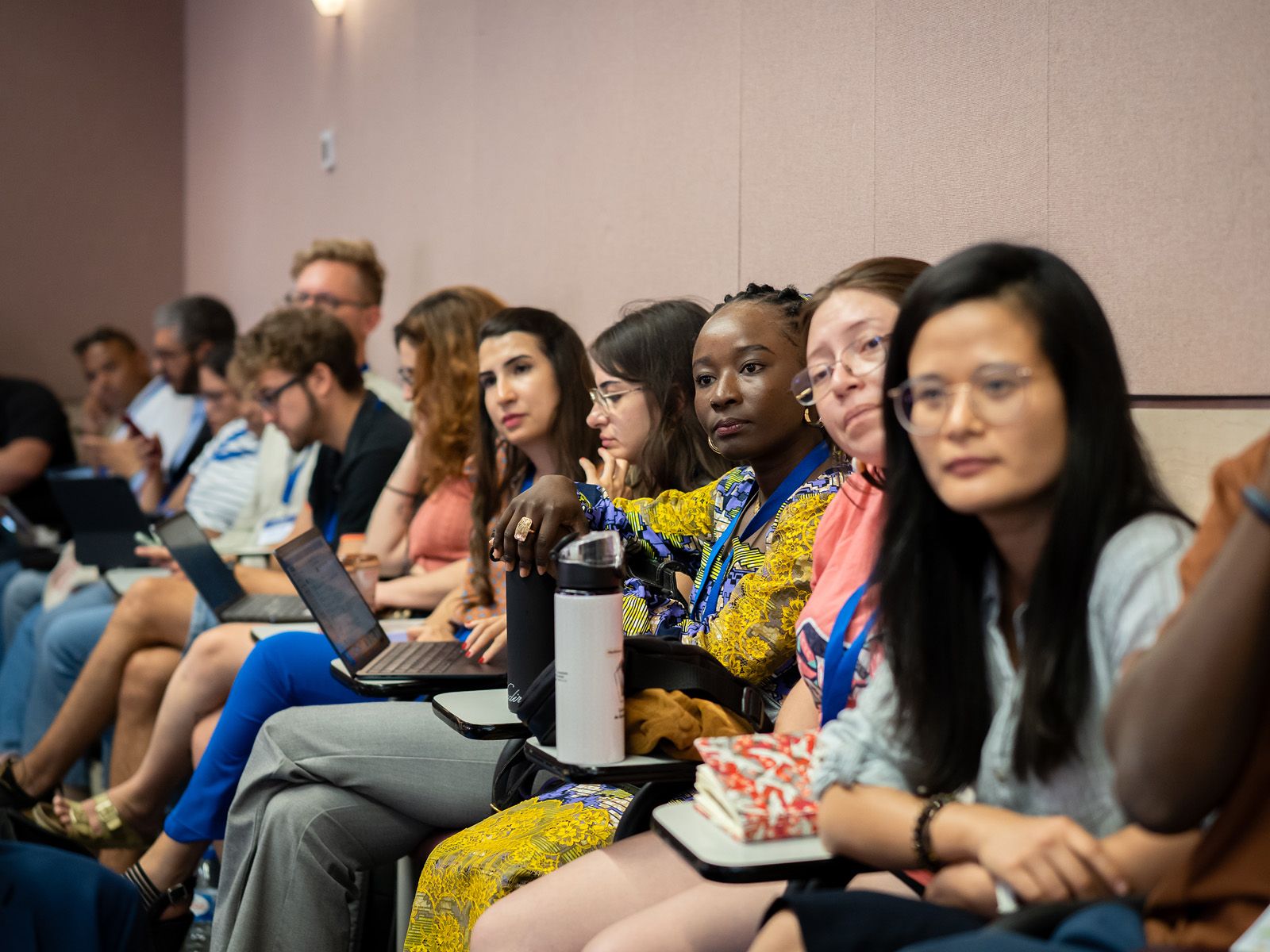
Policy Briefs from the Forum
.
.
Martina Canesi
Securing digital borders: confronting technology-facilitated violence against migrant women in the Euro-Mediterranean


.
.
Elias Hayek
Open waste data for a circular MENA. Practical transparency for better services, trust, and a just transition


.
.
Rami Khoucha
The smart green switch: a digital framework for equitable urban greening in the euro-mediterranean region
.
.
Mahmoud Arbouch
Securing the future of global trade in the mediterranean basin: a cooperative policy framework for Tanger Med and Algeciras Ports

Voices from the Forum
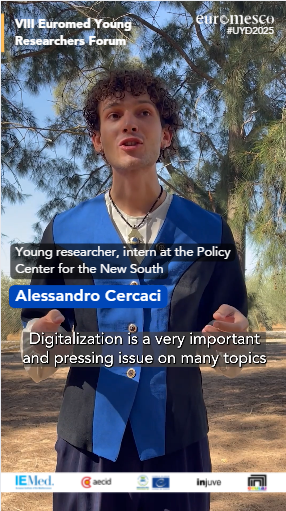
Konstantina Liontou
Legal professional specializing in European Union law, with a strong focus on migration and asylum
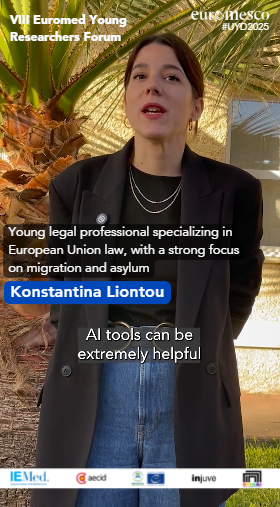
Rami Khoucha
Forestry engineer, founder of EcoBoost, co-creator of the award winning “Save Forests AI” wildfire detection system

Martina Canesi
Postgraduate student in Diplomatic Studies at LUISS School of Government
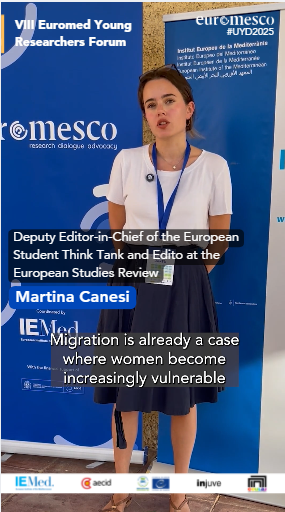
Nabil Ferdaoussi
Doctoral Fellow at Institute for Humanities in Africa (HUMA) and PhD candidate in Social Anthropology
